One of the best ways to keep your hanging baskets blooming strong from spring all the way through summer is learning the secrets of how to fertilize them in just the right way, at just the right time – and with the just the right fertilizer!
Petunias, geraniums, marigolds and other big flowering annuals can produce hundreds of flowers at a time on top of their foliage. But to do so, they use a tremendous amount of nutrients from the soil as they grow.
Unfortunately, even if you use the most fertile potting soil in the largest hanging basket you can find, the soil inside simply can’t contain enough energy to sustain quality plant life for an entire season. But that is exactly where fertilizing saves the day!
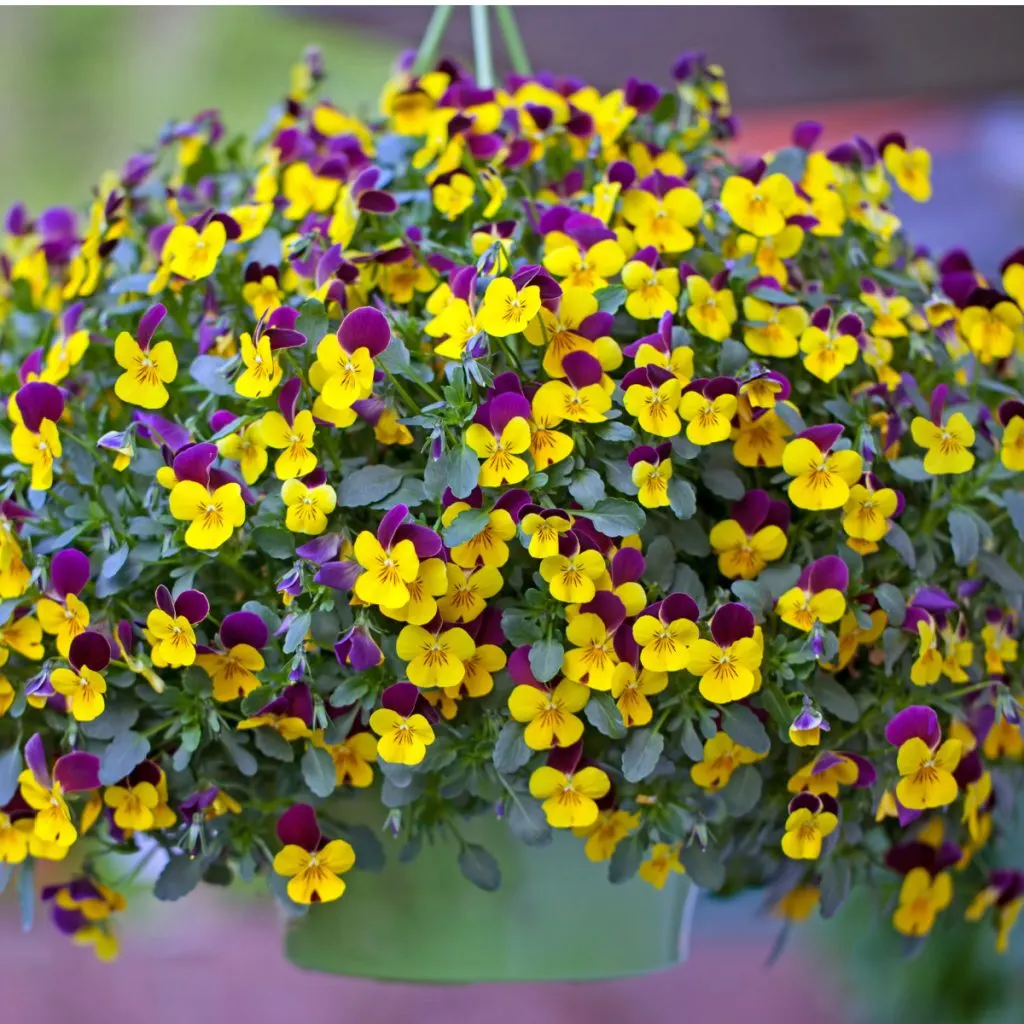
By supplying your baskets with fertilizer throughout the spring and summer months, you can keep the soil energized – and of course – your plants flowering stronger than ever. But here’s the real key – that energy from the fertilizer has to be consistent – and in the right form and dose!
How To Fertilize Hanging Baskets – 2 Simple Secrets To Long Lasting Blooms!
#1 The Power Of Low & Slow
The most important secret of all to fertilizing hanging baskets or any container for long lasting blooms is to always power them with a slow, steady and consistent amount of energy.
Plants that receive inadequate or infrequent energy will struggle not just to bloom, but to survive. Without consistent power, stems and foliage weaken, and the plant’s roots can’t store enough energy to produce new flowers.
On the other hand, giving your plants too many nutrients all at once will cause issues as well. When hanging baskets get an overly large jolt of energy, they don’t use it to produce more blooms. Instead, they use that power to grow excessive foliage and a lot of roots!
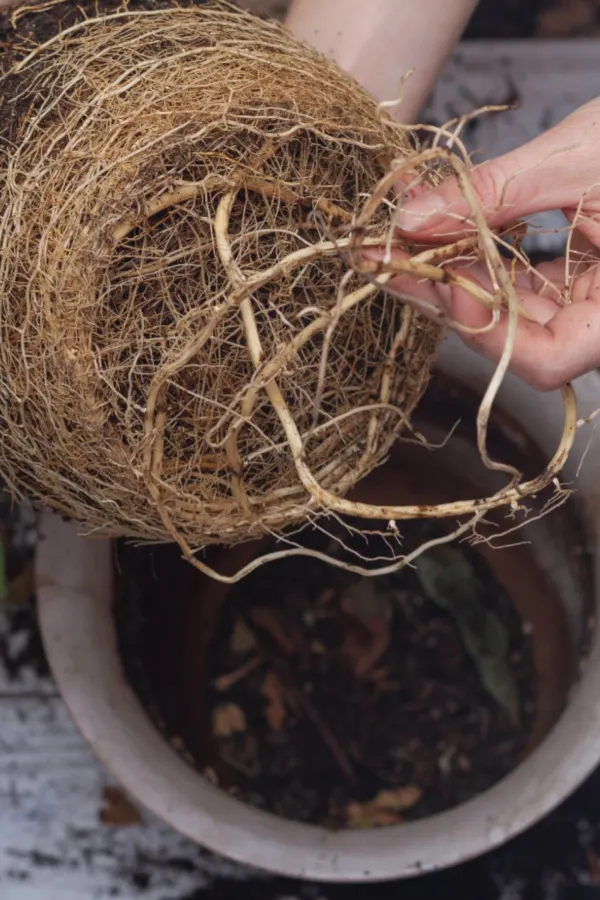
In fact, they expand their roots so quickly that the plant becomes root-bound. And once a plant becomes root-bound, it can’t absorb water or nutrients. The end result? A plant that quickly loses it luster and begins to fail.
So how do you fertilize your plants just right? With a simple two prong approach that will have them blooming with gusto all season long!
The Best Way To Fertilize Hanging Baskets – 2 Simple Ways To Power Your Plants
There are two ways to provide nutrients to hanging baskets – through slow-release granular fertilizers, or by using a liquid version. So which is better? As it turns out, using a combination of the two is the perfect solution for long lasting plants – and blooms!
How Slow Release Granular Fertilizers Work – How To Fertilize Hanging Baskets
Slow release granular fertilizers work by releasing nutrients in a low dose over a long period of time. By adding a slow-release granular fertilizer to the soil in your baskets every month, you can keep the soil supplied with a good supply of basic energy.
For More Great Info, Listen In Below To Our Podcast On How To Fertilize Hanging Baskets!
The good news is that it isn’t hard to do! In fact, it’s actually quite easy using either worm castings or a light commercial granular fertilizer to do the trick.
Worm castings are the manure of earth worms. And they are actually the perfect low & slow fertilizer for hanging baskets. They break down slowly, leaching their nutrients into the soil in such a way that the plant’s roots can soak it in easily.
To apply, simply sprinkle a quarter to a half cup of castings every month on the soil of your hanging baskets. Then water in to start the magic! Every time you water after, you will continue to leach light power to your plants. Product Link: 100% Pure Worm Castings
If you prefer a more traditional granular fertilizer, you can use a fertilizer with a balanced, lower strength formula. Fertilizers in the 4-4-4 range (NPK) are best. Product Link: Jobe’s Slow Release Granular Fertilizer
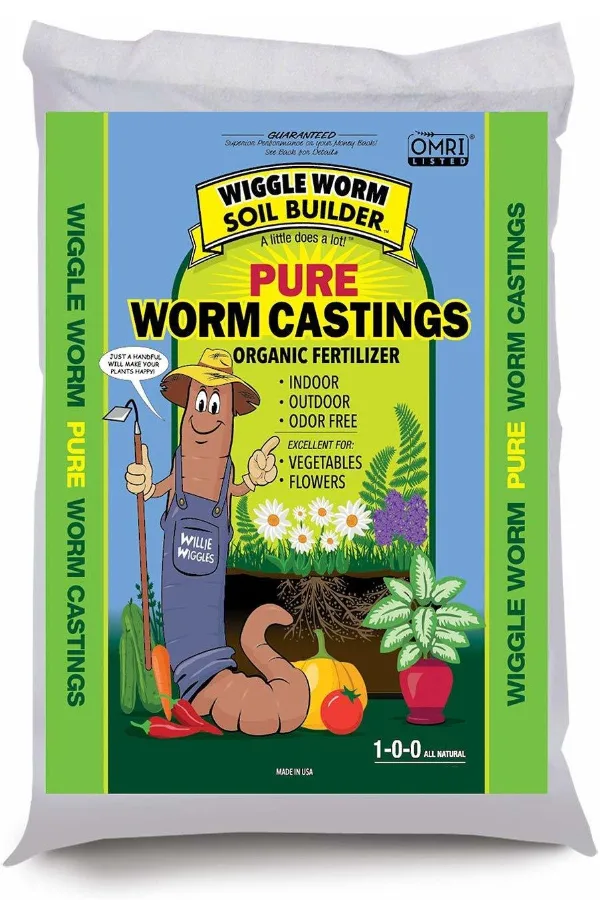
How Liquid Fertilizers Work – How To Fertilize Hanging Baskets
Liquid fertilizers make the perfect partner to granular slow release fertilizers. Granular is slow and steady -while the liquid gives a more instant but still steady punch of power. In liquid form, the nutrients absorb easily. Not only via the roots in the soil, but through the leaves and stems as well.
The plants take the nutrients in fast in liquid form, and the nutrients quickly begin to feed and help the plant. It’s a process that granular fertilizers can’t compete with, and exactly why using a combination of the two works so well.
The slow release granular fertilizer works to provide a steady stream of low-dose nutrients to keep the plant healthy. Meanwhile, applying a liquid fertilizer every 10 to 14 days provides a light but quick boost that plants can use to power new blooms.
The Best Liquid Fertilizers For Hanging Baskets
When it comes to powering you baskets with liquid fertilizer, it’s important to select one that will not be too powerful or strong, but yet still contain a good enough supply of nutrients to energize your plants. For liquid fertilizing, there are 3 great choices that all work well:
Liquid Commercial Fertilizer – How To Fertilize Hanging Baskets For Big Blooms
If purchasing a liquid fertilizer, look for a liquid soluble fertilizer with a high ratio of phosphorous versus nitrogen and potassium. Phosphorous powers blooms – and can it ever have your baskets flowering big Product Affiliate Link: Miracle Gro Garden Pro Bloom Booster 10-52-10
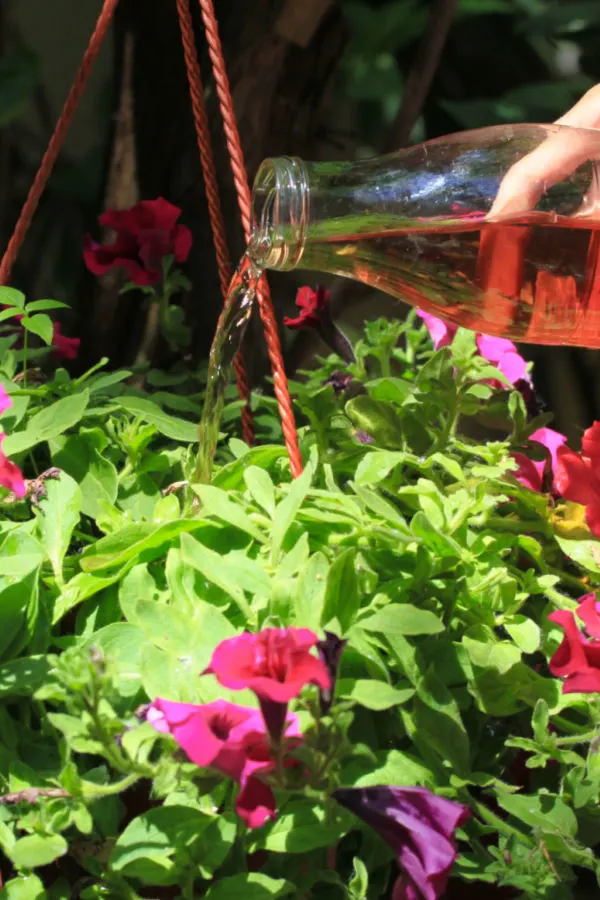
Compost Tea – How To Fertilize Hanging Baskets For Big Blooms
Compost tea is an incredible all-purpose liquid fertilizer. And because of that, it truly is excellent for fertilizing hanging baskets and container plants. Even better, it can be made for free! See: How To Make Homemade Compost Tea – Power Your Plants Naturally!
To create, simply mix a few shovel-fulls of fresh compost in a 5 gallon bucket. Allow the mix to steep for a few days. Be sure to stir the mixture a few times each day to help the water absorb the nutrients from the compost.
To use, simply strain the mixture and water your plants as you would for a regular watering. It really is that easy! The nutrients are absorbed both by the foliage and the roots, and your plants will have strong, steady and beautiful growth.
Worm Casting Tea – How To Fertilize Hanging Baskets For Big Blooms
Worm castings can make an excellent slow-release fertilizer, or a powerful liquid one too. This tea is made in the same fashion as compost tea, but using worm castings in place of the compost.
To make, place 1/2 cup of castings into 1 gallon of water. Stir or shake well, and allow it to steep for 24 hours. To use, simply shake one final time and water your plants with the tea as you normally would for a regular watering.
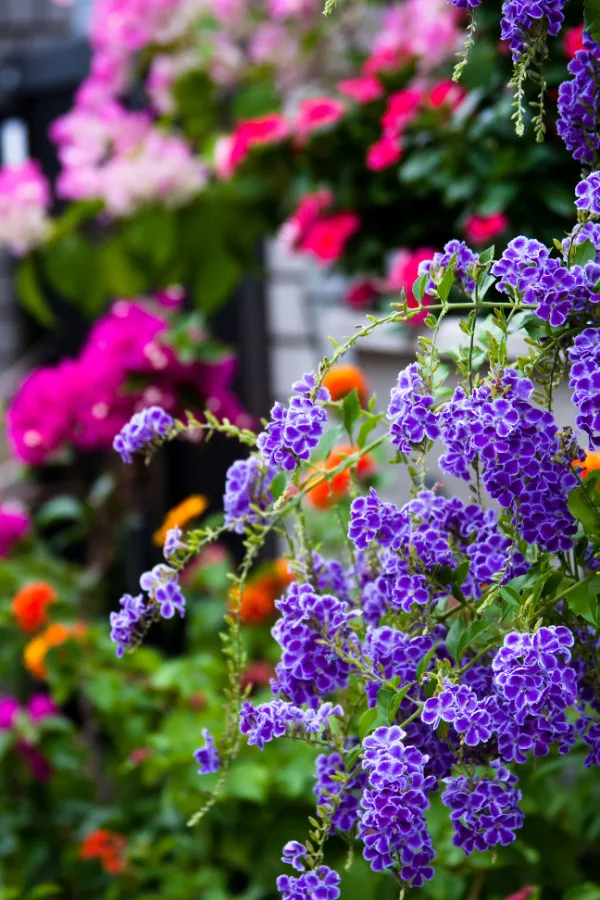
The beauty is there is no need to strain the castings. They can be poured on the plants right with the water, and with no worry of burning or harming the plants. In fact, they will only help release more nutrients as they break down.
Keep Your Baskets Blooming!
By using a low and slow two-prong approach to keeping your hanging baskets powered, not only will you extend your plants life, but its bloom cycles as well. In fact, in most cases, not just though summer, but right into fall too. Here is to keeping your baskets strong and vibrant from spring until fall!
This Is My Garden
Follow Our Facebook Page For Great Gardening Tips And Advice! This Is My Garden Facebook Page
This Is My Garden is a garden website created by gardeners, for gardeners. Jim and Mary Competti have been writing gardening, DIY and recipe articles and books and speaking for over 15 years from their 46 acre Ohio farm. They publish three articles every week, 52 weeks a year. Sign up today to follow via email, or follow along!
